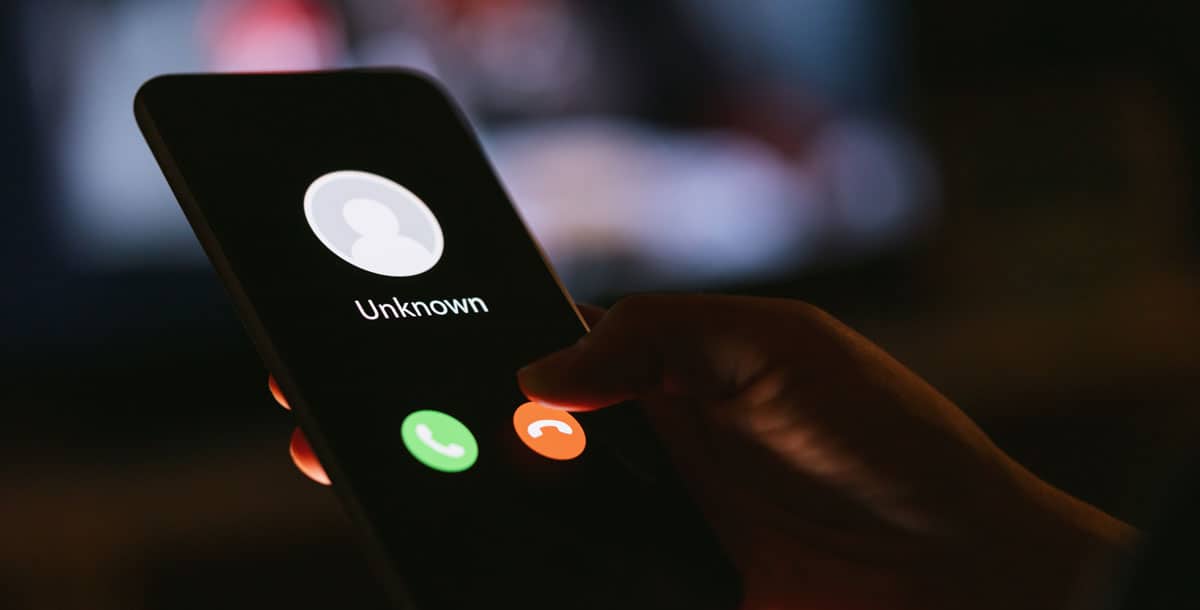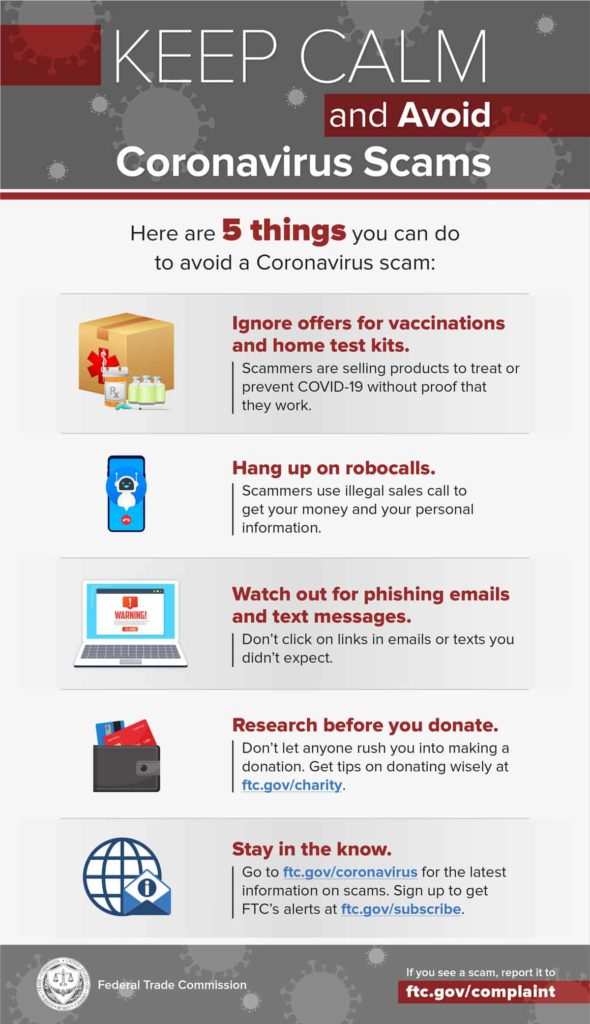
A round-up of some of the most important things to remember
In turbulent times, we are focused on the things that matter most: the health and well being of our loved ones and ourselves. A definite blessing of perspective.
But on the downside, this is when perpetrators can prey on the public’s fear, distraction and confusion. Since information about Covid-19 is evolving daily, this leaves a lot of room for scammers to step in with what can appear to be answers.
So how do you guard against falling victim to a scam? Please join us Tuesday, April 14 from noon to 1pm for a Facebook Webinar that covers Senior Scams and How to Avoid Them. Learn about common scams, what to look for if you or a loved one is a victim, and get your questions answered. You can join the Traditions Facebook Event with this link: https://www.facebook.com/events/522437328442134/.
In the meantime, stick with these important guidelines and reminders:
1. IF YOU DON’T RECOGNIZE A NUMBER CALLING YOU, DON’T ANSWER THE PHONE. It’s ok to let the call go to your answering machine or voicemail. If it’s someone you need to speak with, they’ll leave a message.
Answering these calls may seem harmless, but often even pushing a number during the call can release personal information.
2. IF YOU DON’T RECOGNIZE A PERSON AT YOUR DOOR, YOU DON’T NEED TO OPEN IT OR ACKNOWLEDGE YOU ARE HOME. Ask someone to leave you information on your doorstep or in your mailbox, or simply don’t answer the door.
3. NEVER CLICK ON LINKS IN EMAILS OR TEXTS UNLESS YOU VERIFY THE SENDER. You’ve likely heard this one before, but clicking links can expose your device to a variety of harmful software and malware.
Scammers can even make it appear as if the message is coming from someone you know, including the Centers for Disease Control (CDC) or World Health Organization (WHO). So if you’re unsure, check with that person before clicking a link, or use sites like coronavirus.gov and usa.gov/coronavirus to get the latest information.
4. DON’T GIVE OUT PERSONAL INFORMATION TO ANYONE UNTIL YOU VERIFY WHO THEY ARE AND IF THEY ARE LEGITIMATE. Scammers are claiming they can provide medical discounts, free and reduced rates on personal protective equipment (PPE), even early federal stimulus checks.
Don’t give out banking or credit card information or provide them with any personal information. Government agencies, financial institutions and other legitimate organizations will not reach out to you by phone, email or text.
If you have questions or are unsure, ask a family member or call your local police department or state fraud hotline before you take any action.
5. WATCH FOR THESE COMMON COVID-19-RELATED SCAMS. And if you see one, you can report it to your local police or to ftc.gov/complaint.
- Fake Covid-19 Test Kits. You cannot purchase Covid-19 test kits, and you should not give out personal information or health insurance details in exchange for one. Also, no one will be coming to your home to administer a test.
- Payment for Covid-19 Vaccine. Some scammers have been claiming a vaccine is available (it is not) or that you can pre-pay to ensure you will receive one first (you cannot). Others have been asking for donations to fund vaccine research. If you do want to make a donation to the medical community for Covid-19 treatment, research or vaccine development, contact your local hospital or visit the CDC.gov for more information.
- Charitable Donations. We all want to help, and donating to a charity during a time of great uncertainty and hardship is an excellent way to make a difference.
Be cautious about anyone who asks you to wire funds or donate with gift cards, and stick with organizations you’ve donated to in the past. You can always check with your church, local schools or hospitals for causes and organizations in need.
For a fast and easy visual, the Federal Trade Commission (FTC) just released this chart. You can visit FTC.gov for more handy reminders and new information as it becomes available.






